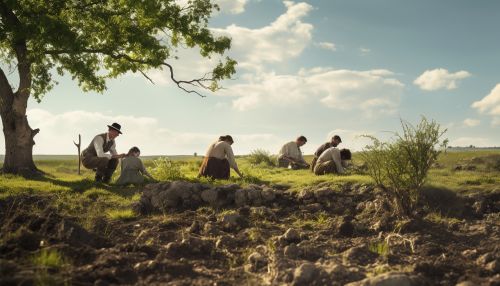Cultural Anthropology
Introduction
Cultural anthropology is a branch of anthropology focused on the study of cultural variation among humans. It is in contrast to social anthropology, which perceives cultural variation as a subset of a posited anthropological constant. The core methodological technique of cultural anthropology is ethnography, a qualitative approach to understanding cultures through first-hand experience, participation and observation in the field.
History
Cultural anthropology has a rich history, with roots in the works of early thinkers like Herodotus and Ibn Khaldun. However, it was only in the late 19th and early 20th centuries that cultural anthropology emerged as a distinct discipline.


Theoretical Foundations
Cultural anthropology is grounded in a number of theoretical foundations. These include cultural relativism, the idea that all cultures are of equal value and need to be studied from a neutral point of view; and functionalism, the theory that every aspect of a culture has a function and contributes to the survival of that society.
Methodology
The primary method used in cultural anthropology is ethnography. This involves the anthropologist immersing themselves in the culture they are studying, often living with the people and participating in their customs. This method allows the anthropologist to gain an insider's perspective on the culture.
Subfields
Cultural anthropology is a broad field with many subfields. These include medical anthropology, the study of health and illness in cultural context; political anthropology, the study of politics in a cultural context; and economic anthropology, the study of economic systems in a cultural context.
Contemporary Issues
Cultural anthropology is a dynamic field that continually evolves to address contemporary issues. These include the impact of globalization on local cultures, the role of culture in environmental conservation, and the cultural dimensions of conflict and peace.
